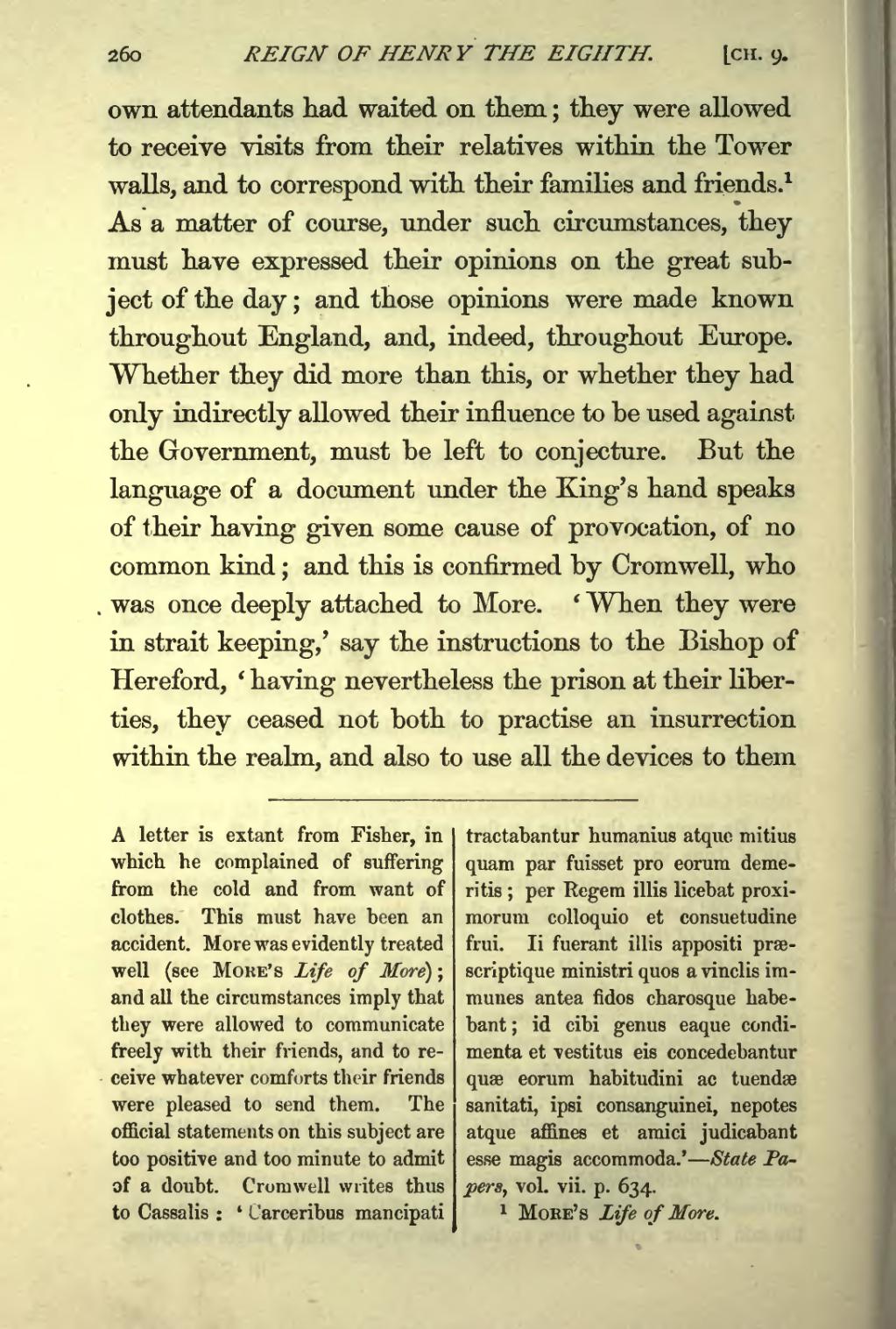own attendants had waited on them; they were allowed to receive visits from their relatives within the Tower walls, and to correspond with their families and friends.[1] As a matter of course, under such circumstances, they must have expressed their opinions on the great subject of the day; and those opinions were made known throughout England, and, indeed, throughout Europe. Whether they did more than this, or whether they had only indirectly allowed their influence to be used against the Government, must be left to conjecture. But the language of a document under the King's hand speaks of their having given some cause of provocation, of no common kind; and this is confirmed by Cromwell, who, was once deeply attached to More. 'When they were in strait keeping,' say the instructions to the Bishop of Hereford, 'having nevertheless the prison at their liberties, they ceased not both to practise an insurrection within the realm, and also to use all the devices to them
- ↑ More's Life of More.
A letter is extant from Fisher, in which he complained of suffering from the cold and from want of clothes. This must have been an accident. More was evidently treated well (see More's Life of More); and all the circumstances imply that they were allowed to communicate freely with their friends, and to receive whatever comforts their friends were pleased to send them. The official statements on this subject are too positive and too minute to admit of a doubt. Cromwell writes thus to Cassalis: 'Carceribus mancipati tractabantur humanius atque mitius quam par fuisset pro eorum demeritis; per Regem illis licebat proximorum colloquio et consuetudine frui. Ii fuerant illis appositi præscriptique ministri quos a vinclis immunes antea fidos charosque habebant; id cibi genus eaque condimenta et vestitus eis concedebantur quæ eorum habitudini ac tuendæ sanitati, ipsi consanguinei, nepotes atque affines et amici judicabant esse magis accommoda.'—State Papers, vol. vii. p. 634.
